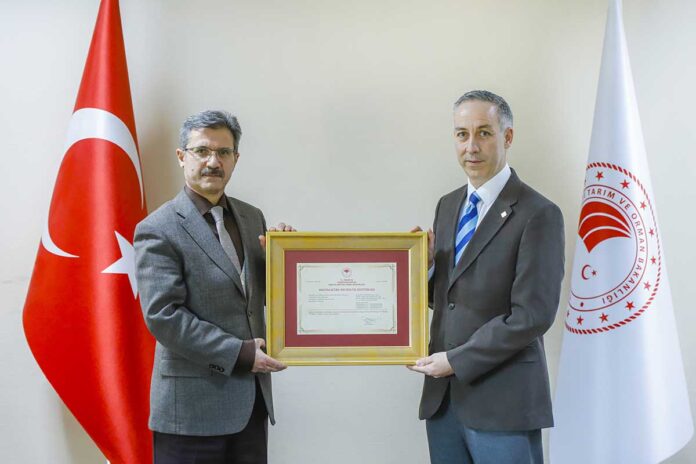
As a result of excellent biosecurity standards, Aviagen® Anadolu officially obtained compartmentalization status from the Turkish Ministry of Agriculture and Forestry on October 27, 2020. This allows the company to continue to deliver birds to customers all over Turkey and the Middle East and to countries who have formally recognized and accepted compartment status, when an Avian Influenza (AI) outbreak has occurred in other parts of the country.
Aviagen Anadolu production facilities were inspected by the Turkish Ministry of Agriculture and Forestry within the scope of the “Directive on the Definition and Declaration of Compartments Free From Mandatory-to-report Avian Influenza” prepared under the “Regulation on Disease-Free Compartmentalization”, as a result of which Aviagen Anadolu received the compartment certificate approved by the Ministry on October 27, 2020 following the United Kingdom, US and Brazil, thanks to its efforts towards biosecurity.
Compartmentalization ensures that a company with compartment status can export from its establishments located in the defined compartments when the Avian Influenza disease occurs in a country or region. Compartmentalization takes a proactive approach to prevent the disease from penetrating into the establishments located in a compartment and guarantees that the necessary high-level biosecurity measures are taken; all activities are recorded and traceable in a transparent manner; and management and production systems are constantly inspected and controlled through internal or Ministry inspections. It is possible for such companies to prevent not only Avian Influenza, but also other infectious agents from penetrating into their establishments thanks to the high-level biosecurity measures put in place.
The capacity of a company with compartment status to export depends on countries’ bilateral agreements through which they recognize each other’s status. Aviagen Anadolu will continue to successfully represent Turkey in exporting markets with the support of the officials of the Ministry of Agriculture and Forestry as the public authority, and of sectoral associations and organizations for a sustainable compartment status and its recognition by other countries.
This compartment status will also enable sustainable production within the Turkish poultry industry and the continuous supply of high generation stock (Grand Parent and Parent Stock) without any problems, so that consumers can have access to healthy, sustainable and affordable poultry meat. The approval of compartments in various countries through bilateral agreements between public authorities to guarantee the supply of parent stock is strategically important for the Turkish poultry industry in order to continue to meet the domestic demand and to maintain, and further improve if necessary, its strong position in the international arena.
John McGrellis, General Manager for Aviagen Anadolu, expressed the hard work and dedication that contributed to this achievement. “I am delighted that the Turkish government assessed our facilities and procedures, found them compatible with chapter 4.4 of the OIE health standards for zoning and compartmentalization, and granted Aviagen Anadolu enhanced compartment status. This process began over 2 years ago and required intensive and challenging work by Aviagen and official veterinary services staff, especially recently during very difficult pandemic restrictions. The recognition of our very high biosecurity standards and disease monitoring protocols should give confidence to all our customers; domestic and international that Aviagen Anadolu will continue to invest in protecting our stock and thereby ensuring security of supply. Although the compartmentalization status was awarded in October, the process is ongoing, and regular surveillance and auditing will be required by the official veterinary authorities to ensure continued compliance to the regulations. I hope in the upcoming months and years the Turkish Government will be able to develop bilateral agreements between other importing countries, accepting compartmentalization and providing options for trade in the unfortunate event of an Avian Influenza disease outbreak.”

















